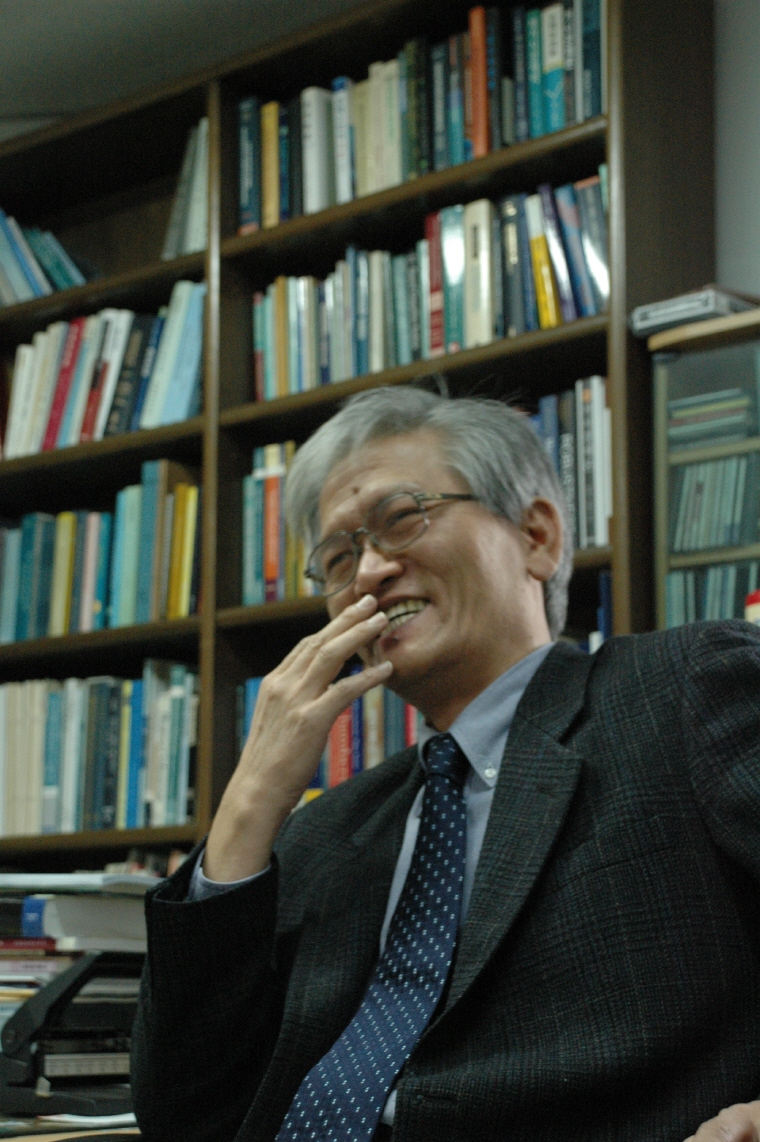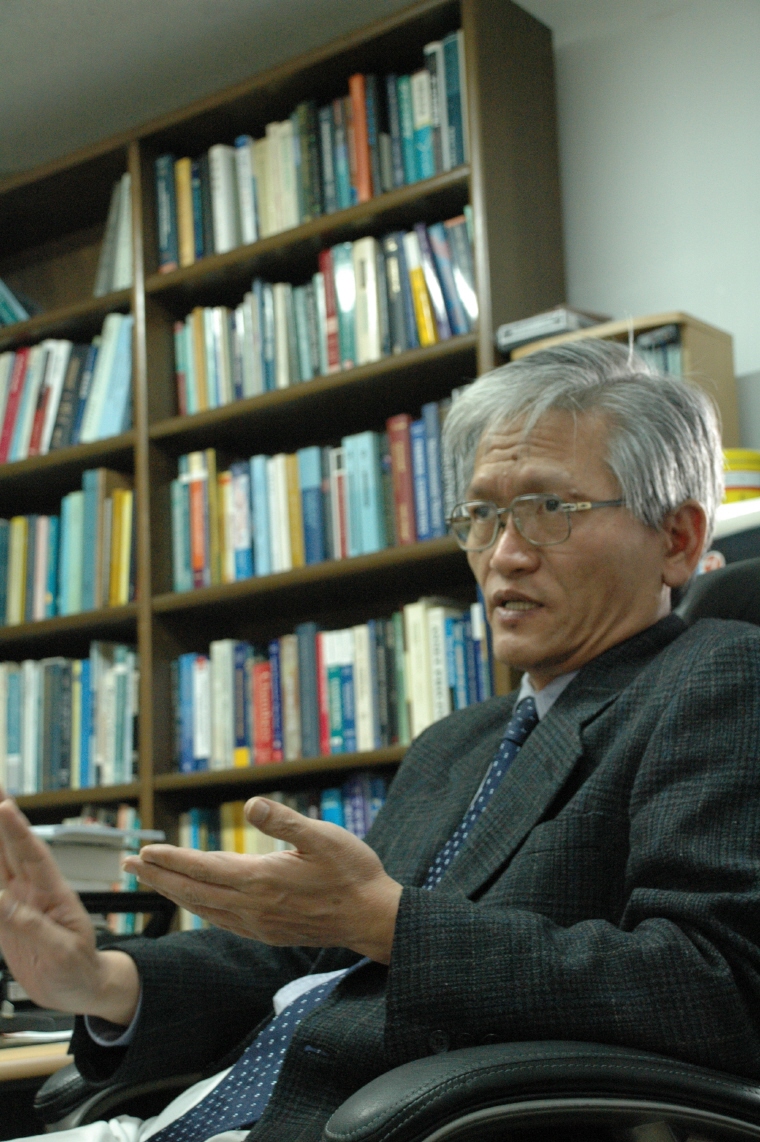A Yonsei professor respected by the world
YOO BYUNG-sam ('72, Dept. of Applied Statistics) is one of only three professors in Korea who has been recognized by the American Institute for Scientific Information (ISI) for producing an academic paper that is cited the most by other research papers. Fortunately for Yonsei Univ., he is a graduate, and currently professor of Yonsei Univ. As a leading researcher in the econometrics field, he is working rigorously to find the invisible strings that connect our society. Since the number of citations is regarded as a key category for being nominated for the Nobel Prize, The Yonsei Annals interviewed him in order to learn more about his outstanding work.
What were you like as a child?
I was just like other kids who grew up in the countryside. I spent my time running through fields catching grasshoppers and frogs. I really did not think about my future when I was young; instead, I just enjoyed my life. As a teenager, I lived a very boring life, as you can imagine. My routine was school, house, bed, and school again.

Memories of Yonsei when you were a student?
When I was a student, if you took a step out of Seoul, all you could see were mountains and plains. After class, I would go to Sin-Chon Station and take a train to Songchu, where I spent time with my friends. We would buy a box of makgeolli to drink and played games like "drop-thehandkerchief."
Quite a different life from how current college students spend their leisure time. At that time, many students in Yonsei Univ. had a hard time paying for tuition. However, students, including myself, packed a lunch from home to save money. Sometimes I bought lunch at the cafeteria,but I could only afford to eat soup with rice.Did you encounter any problems during your long study of economics? Whenever you have an upcoming exam, no matter how much you study, you will always encounter a problem that is beyond your comprehension. As a scholar, I also come across problems I don't know how to solve. When I do a research on certain topics, many difficulties obstruct me. Occasionally, much sophisticated social data troubles me, and no matter how hard I try to analyze them, the result is different from my prediction. Also, from time to time, I get criticized for my research because I focus too much on small details rather than looking at the big picture.
The Journal of econometrics announced your thesis "Forecasting and Testing in Co-integrated System" as the most referenced paper in the world between 1981 and 1999. Could you give a brief explanation about this paper?
To give a simple explanation of my paper, let's assume there are two Yonsei students, A and B, and they are separately heading to a bar for a drink because they are happy about beating Korea Univ. at the Yon-Go Athletic Meet. Would they go together or alone? If they are just Yonsei Univ. students with no particular relationship with one another, A will have no idea where B will drink his soju. If they were close friends, what would be different? A would have a greater chance of knowing where B might be after the game. So, simply put, my theory is about finding out whether there are links between two or more data, and if the data is found to be closely linked with each other, then relationships from one datum to other data could be predictable.
What social implications do the number of paper citations have?
A scientific treatise is announced when scholars research and find out new results that are beneficial for our society, and many scholars, including myself, would be more likely to do research on a subject that has a huge impact on our society. The more citations a research has means that it has a larger influence throughout the world. But, people should not just focus on the number of citations to evaluate whether a paper is good or bad. There are several papers that are not cited as much as they should be, even though they possess great findings that can be valuable to human life.
There are very few Korean scholars who have their papers referenced and cited. What do you think is the problem?
I believe that our historical and cultural background is the main problem. I think, traditionally, Eastern societies focused more on fatalism, which states that the future is already decided by supernatural forces. On the other hand, Western society concentrated on finding the scientific truth of nature and of the future. For example, when an apple falls, most Eastern cultures concentrated on explaining the phenomenon based on destiny, while western countries were struggling to find the scientific reasons behind an apple falling to the ground. Therefore, most Eastern studies could not be examined for authenticity, and it tended to produce different answers to one situation. This historical background still produces a gap between Western and Eastern research.
What are some important qualities for becoming a professor?
I believe students should know that to be a professor, your "hips have to be heavy," as they say in Korea. In other words, you sit for a long time, researching, with little opportunity to do different activities. Professors have to stick to one subject and must be able to concentrate on it for a long time. Results do not come out after a day of research; it could take years finally to retrieve the results you aimed for. Even if you manage to get a result, you do not know whether it is correct or wrong. Therefore, if you are a person who likes to go out when the weather is warm and sunny, I would not recommend a career as a professor. However, if you are able to read a comic book in an attic even when the weather is perfect outside, you could think of becoming a professor. Of course, you should be reading other books instead of a comic book!
Any last words to Yonseians?
When you are studying a certain subject, do not simply memorize the exact facts of the subject, but instead try to reproduce it by thinking in your own words. For example, do not just memorize what a function means, but try to reinterpret it and put it in to your own words. Also, do not lock yourself up in an invisible cage. As a teenager, I was very reluctant to take up different challenges, and now I am regretting it a lot. Open your eyes to the world outside of Yonsei Univ. and try to experience as many new things as you can.


